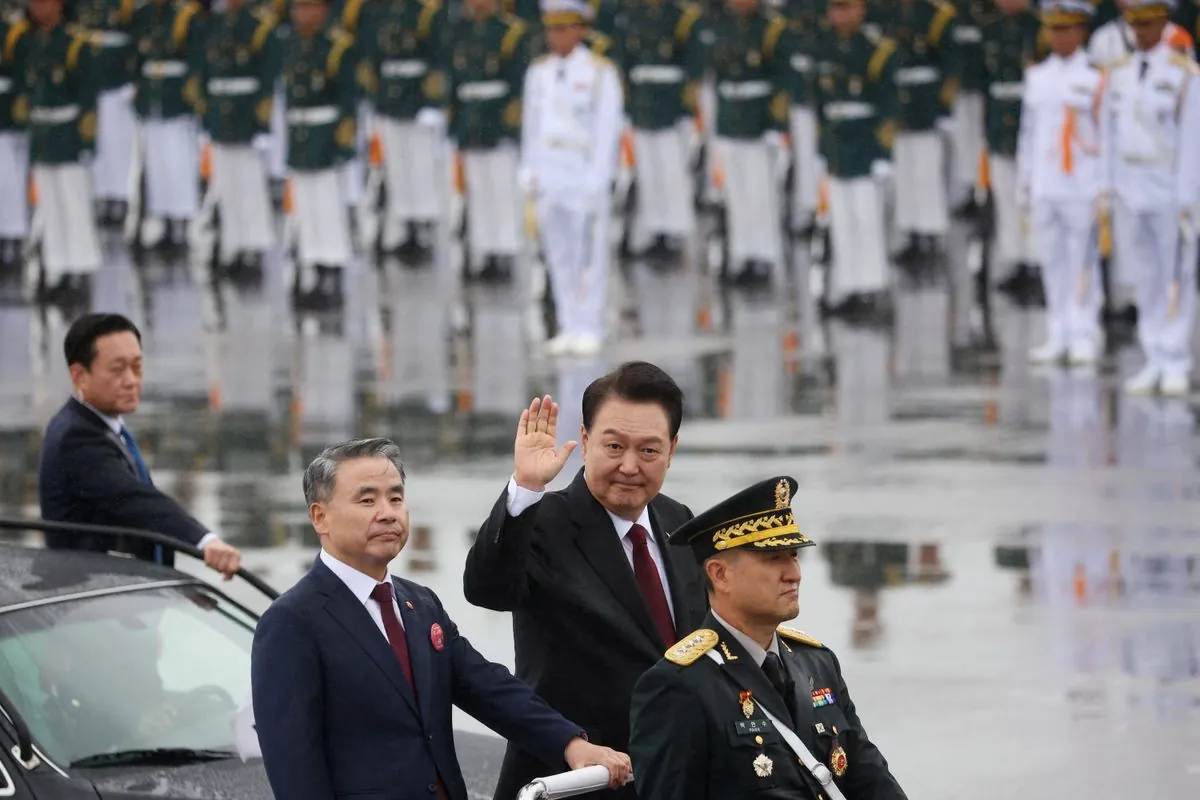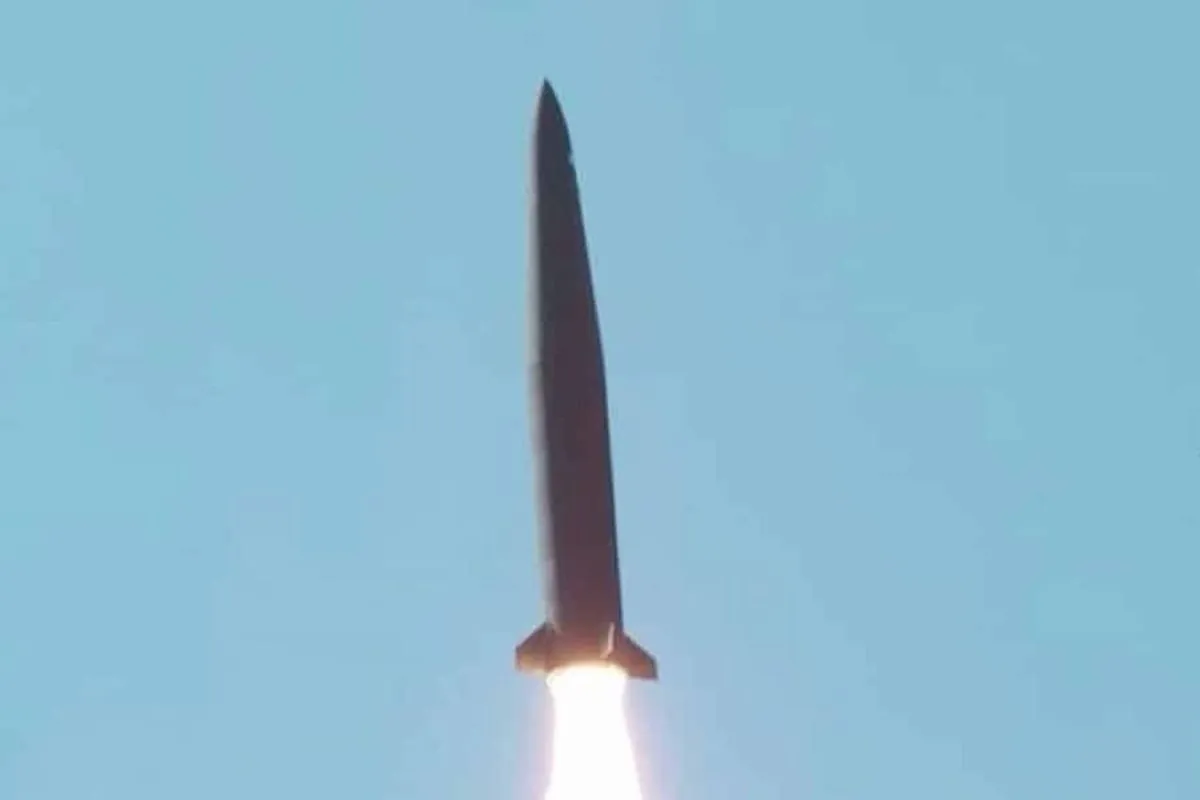South Korea Flexes Military Might, Warns North Korea on Armed Forces Day
South Korea showcased its most powerful weapons during Armed Forces Day, issuing a stern warning to North Korea. The event highlighted growing tensions and the complex geopolitical situation on the Korean Peninsula.

On October 1, 2024, South Korea marked its annual Armed Forces Day with an impressive display of military prowess, sending a clear message to its northern neighbor. The event, which has been celebrated on this date since the end of the Korean War in 1953, took on added significance amid rising tensions on the Korean Peninsula.
President Yoon Suk Yeol, who has been in office for two years and five months, addressed thousands of troops at a military airport near Seoul. He issued a stark warning to North Korea, stating that any attempt to use nuclear weapons would result in a "resolute and overwhelming response" from South Korea and its allies. Yoon emphasized that such an action would lead to the collapse of the North Korean regime.
The centerpiece of the military showcase was the Hyunmoo-5 ballistic missile, South Korea's most powerful weapon to date. This missile, part of the Hyunmoo series developed by South Korea, is reportedly capable of carrying an 8-ton conventional warhead and penetrating deep underground bunkers. Its unveiling marks a significant advancement in South Korea's defensive capabilities.

In a show of solidarity, the United States participated in the event by flying a B-1B Lancer bomber, a supersonic heavy bomber, over the ceremony. This demonstration underscored the strength of the U.S.-South Korea alliance, which has been a cornerstone of regional security since the signing of the Mutual Defense Treaty in 1953.
Yoon's administration has prioritized strengthening military ties with the United States and improving trilateral cooperation with Japan. This strategy aims to counter North Korea's advancing nuclear program, which has been a source of growing concern in recent years.
Last month, North Korea heightened regional anxieties by revealing photos of a uranium enrichment facility, its first such disclosure since showing American scholars the Yongbyon nuclear complex in 2010. This development, coupled with North Korea's withdrawal from the Nuclear Non-Proliferation Treaty in 2003, has intensified international efforts to address the nuclear threat.
South Korean officials anticipate that North Korea may attempt to escalate tensions further in the lead-up to the U.S. presidential election next month. Experts suggest that North Korea might be seeking to expand its nuclear arsenal to gain leverage in future negotiations, potentially aiming for concessions such as sanctions relief.
The geopolitical landscape of the Korean Peninsula remains complex, with the two nations technically still at war since the 1953 armistice. The Korean Demilitarized Zone (DMZ) continues to separate the countries, with Seoul, South Korea's capital, located just 35 miles from the North Korean border.
As South Korea, now the world's 10th largest economy by nominal GDP, continues to strengthen its military capabilities, it also maintains a conscription system requiring male citizens to serve. Meanwhile, approximately 28,500 U.S. troops remain stationed in South Korea, underscoring the enduring nature of the alliance.
The international community, including the United Nations, has responded to North Korea's nuclear ambitions with multiple rounds of sanctions. However, diplomatic efforts such as the Six-Party Talks, which began in 2003 to address the nuclear issue, have been stalled since 2009.
As tensions persist, both Koreas continue to develop their military capabilities. While South Korea showcases its technological advancements, North Korea adheres to its "Juche" ideology of self-reliance, maintaining a defiant stance against international pressure.
The situation on the Korean Peninsula remains a critical focus of global security concerns, with the potential for both conflict and diplomacy shaping the region's future.
"We will bolster our powerful war deterrent and take unspecified steps to stoke security concerns to the security of the U.S. mainland."
This statement from North Korea suggests the possibility of further provocations, potentially including the test-firing of intercontinental ballistic missiles capable of reaching the United States.
As the world watches the developments on the Korean Peninsula, the Armed Forces Day ceremony serves as a reminder of the ongoing challenges and the delicate balance of power in the region.


































